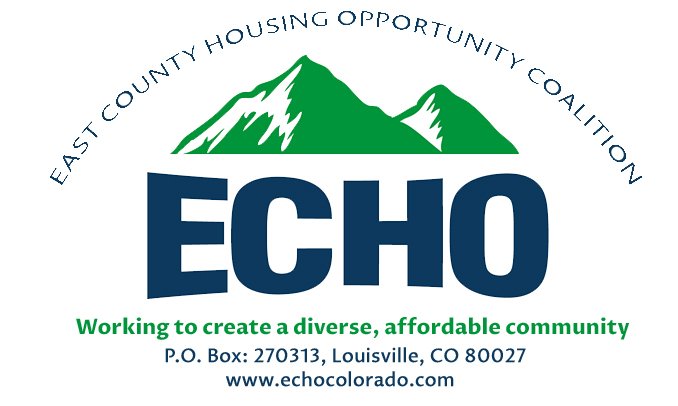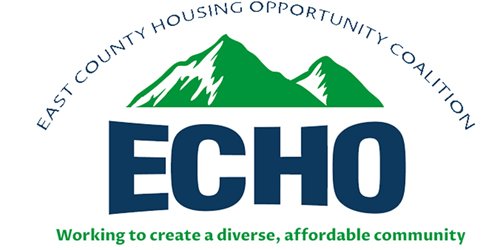Activism: Are you in?
"Activism is the rent I pay for living on the planet."
These words of writer and activist Alice Walker resonate strongly today.
Josephine Commons in Lafayette Colorado, an affordable housing apartment complex for seniors and multi-person households.
Call to Action: Erie Poised to Require All New Development to Include Some Affordable Housing
Do you live in or commute to Erie? Here’s what you need to know…
Inclusionary housing ordinances throughout Colorado and the country are one important tool that a local government can use to help create affordable housing. Erie is preparing to vote on such an ordinance.
UPDATE: July 19, 2022
Stakeholder meetings are coming up in the first week of August. Erie advocates for Affordable Housing and the proposed Inclusionary Housing ordinance are planning to present to the Board of Trustees on September 20th and again, in November.
What is Inclusionary Housing?
A recent study on inclusionary housing in the US defines the policy as “A set of local rules or a local government initiative that encourages or requires the creation of affordable housing units, or the payment of fees for affordable housing investments when new development occurs.” This definition includes impact or linkage fees that generate revenue for affordable housing. (Source: Grounded Solutions Network, 2021).
Where is Inclusionary Housing Working?
Inclusionary housing policies have been adopted in 734 jurisdictions in 31 states and Washington, D.C. Almost all the communities in Boulder County have some form of inclusionary housing.
How Does this Fit for Erie?
Erie has adopted a goal of 12% affordable housing (suitable for people who make 80 percent of Area Median Income and below) to be achieved by 2035. To achieve that goal, the community of Erie needs tools. This ordinance will be the first tool in that toolbox.
What if Developers Don’t Want to Build Affordable Housing?
A typical inclusionary housing ordinance gives developers other options, like cash or land donations, as alternatives. This can help a community seeking large parcels of land for affordable housing. Land costs are one of the biggest reasons housing is not affordable.
What Can YOU do to Help?
• Show up to the Erie Town of Trustees meeting on Tuesday, July 26, 2022, and support the draft affordable housing ordinance. Check out sample talking points.
• Ask your friends and neighbors in Erie to join you at the Erie Town of Trustees meeting.
• Write a letter in support of Erie creating tools to build more affordable housing. Here are the emails and the physical address for the Erie Board of Trustees.
Superior Considering Zoning Change to Allow Housing Near RTD Station - Community Support is Essential
Nationwide, Transit Oriented Development (TOD) is considered a best practice in land use. RTD has issued a policy that affordable housing should be located near transit. Affordable housing near transit allows people to use public transit, and avoid the cost of a car, allowing them to save up so they can eventually buy a home. It also reduces Vehicle Miles Traveled (VMT) and improves air quality and greenhouse gas emissions. Historically such developments have also upgraded neighborhood quality and created local amenities.
The County Commissioners and the Town are once again considering a Transit Oriented Affordable Housing Development at the Superior Park N Ride. Some in the community are asking to wait until the fire rebuilding is done before going forward with this project. As we have seen from other fire areas, this could be YEARS. Many fire survivors, especially renters, need an affordable place to live ASAP. Additionally, the owner of the shopping center, Brixmor, is also seeking a rezoning to allow market-rate residential development in the shopping center area. This creates a real opportunity for a rezoning for both affordable and market-rate housing. The Boulder County Commissioners really need to hear from people in the Community to support this project. commissioners@bouldercounty.org.
ECHO is in strong support, and also supports a robust community engagement process, similar to the one Lafayette undertook in developing the plans for Willoughby Corner. If you have questions, contact us at ECHOBOULDERCOUNTY@gmail.com. Please send a copy of your letter of support to the town board. townboard@superiorcolorado.gov.
UPDATE / NOTE NEW DATES AND TIMES (additional to those held in July): For additional engagement opportunities, The team will be available during the following coffee and office hours to discuss and answer your questions about the proposed community at Superior Marketplace:
Tuesday, July 26, 8:30-10am: Coffee hour at Serendipity Café, Superior Community Center, 1500 Coalton Road, Superior, CO 80027.
Wednesday, August 4, 2022, 8:30-10am: Coffee hour at Serendipity Café, Superior Community Center, 1500 Coalton Road, Superior, CO 80027.
Thursday, August 11, 2022, 8:30-10am: Coffee hour at Serendipity Café, Superior Community Center, 1500 Coalton Road, Superior, CO 80027.
Weekly on Thursdays, 3-4pm, starting on Thursday, July 28, 2022: Virtual office hour with team members on Zoom (https://us02web.zoom.us/j/8604320656).
The project is proposed to be about 200 units of 100% affordable. It will likely be condo-style and include some for-sale and some for-rent. But they can't get to the design stage until they get the rezoning to allow residential development on this site, and it needs your help. Please write to Boulder County Commissioners in support of the project. This project is precisely what the RTD resolution calls for. Here is a link to the RTD resolution:
https://wp-denverite.s3.amazonaws.com/wp-content/uploads/sites/4/2021/08/RTD-TOD-Polciy.pdf
A series of community meetings and coffees to discuss the project are being planned, and the project will have it's own website soon. The website is not yet live, but will be soon at www.BCHAHousingSuperior.org.
Louisville Planning Commission to Review Inclusionary Housing and Rezoning Proposal on Thursday, July 14, 2022
ECHO worked with a group of Louisville residents to create a response to the proposed Louisville Ordinance. Here is what the Louisville residents will be sharing with the Planning Commission and Council.
We are very supportive of efforts to create more affordable housing in Louisville, including rezoning commercial property to residential as an important strategy and even repurposing commercial buildings that have long been empty,
Our research shows that a 30% inclusionary ordinance is among the highest anywhere in the country; recent Denver research by Root Policy Group indicates that inclusionary housing ordinances at 15% - 20% tend to be financially viable.
We want to balance visionary goals with policies that give affordable housing the best chance to become a reality in our community including speedier public processes that allow affordable housing to not get bogged down,
Stronger requirements mean we need stronger incentives in order to get developers to make the finances work:
so that those who might transform commercial properties to residential homes see it as truly feasible and mutually beneficial, rather than viewing it as an obstacle which prevents building.
Incentives could include: faster rezoning, streamlined public input, density bonuses, reduced parking requirements; we trust City Planners can create a package that makes sense for both the city and those who could build the housing.
In this moment more than ever, Louisville residents understand that we need positive relationships with builders to create the housing we need, as well as holding builders accountable to create the mixed- use developments that reduce emissions and greenhouse gasses, and create the kinds of communities people really want to live in.
It’s important that the ordinance provides a practical way to get more housing built rather than being good in theory.
The 30% goal is a significant increase from our goal of 12% affordable housing for new building, and we appreciate having higher aspirations.
We are interested in a 30% inclusionary affordable housing ordinance for rezoning commercial property to residential, as long as the city planners also provide significant measures to make it viable and practical to create this housing.
We also believe a standard of 20% without the additional incentives could be financially feasible and help create more affordable housing.
Lafayette Planning Commission to Vote on Willoughby Corner PUD - Wednesday 7/13/22
The Lafayette Planning Commission will be approving the Plan for Willoughby Corner Affordable Housing project on Wednesday, July 13th. The project is being proposed by the Boulder County Housing Authority (BCHA) as the developer. BCHA proposes 400 permanently affordable homes in a variety of building types, including duplexes, townhomes, senior housing, apartments, and community amenity spaces. The planned housing site is a 24-acre parcel located southwest of 120th Street and East Emma Street in Lafayette. The land parcel sits in an ideal location near important services and the Lafayette town center. The area is considered a priority by the Boulder County Transportation Department for the enhancement of multi-modal transportation options. This project is both lovely, and meets a huge community need. Lafayette residents are encouraged to write letters of support before noon on Tuesday:
https://lafayetteco.gov/FormCenter/Boards-Commissions-20/Public-Input-Planning-and-Building-465
Fire Resources from the Boulder Community Foundation
In addition to helping people rebuild their homes, the Boulder Community Foundation has allocated up to $2.5 million to support Unmet Basic Needs (through “Recovery Navigators”) for anyone in need of support, rebuilding or not.
Unmet needs may include:
o Rent or mortgage assistance
o Eviction prevention assistance
o Childcare
o Child support
o Communications and Technology (computers, internet, mobile phone)
o Transportation (auto payment, insurance, non-cosmetic repairs)
o Medical bills
o Utility bills (electric/gas)
o Renter’s insurance
o Homeowner's insurance
o HOA fees
o Legal services (non-criminal, eviction, foreclosure, family)
o Cremation, burial, and funeral services
o Car repair
o Mental or behavioral health needs
o Appliances and furniture
o Tools of trade
Beginning Friday, June 10, households that registered at the Disaster Assistance Center (DAC) following the event on Dec. 30, 2021 should expect calls to begin the recovery navigation service. Phase 1 of the program involves the Mile-High United Way 211 Help Center, a subcontractor of Lutheran Family Services, performing outreach calls (starting June 10th) to households that registered at the DAC to connect families with initial information, provide local recovery resource information and identify families that are interested in navigation services. Households that did not sign up at the DAC will be able to contact the Recovery Navigators directly, sometime in July.



